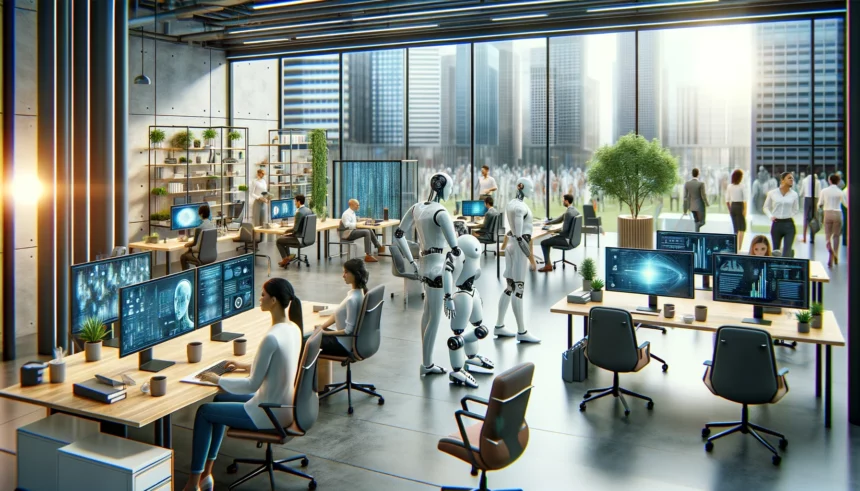Introduction
As artificial intelligence (AI) reshapes the world around us, it’s crucial to recognize its profound impact on the job market. AI offers both challenges and opportunities, transforming existing roles and creating new ones. Understanding and adapting to these changes is vital for both individuals and organizations aiming to succeed in this new era.
The New Landscape: Opportunities AI Brings to the Table
AI is not just about technology; it’s about the innovative job roles it creates across various sectors. Here’s how AI is changing the game:
- Tech and Data Analysis: High demand for AI specialists, data scientists, and machine learning engineers.
- Healthcare: New roles like robot-assisted surgery coordinators and AI health coaches.
- Creative and Design Fields: AI is fostering a digital arts renaissance, requiring artists to blend creativity with tech.
- Customer Experience: AI enhances customer service through smarter chatbots and personalized interactions.
The Challenges: Navigating AI’s Impact on Traditional Jobs
While AI introduces new opportunities, it also poses significant challenges:
- Automation Over Human Labor: Many routine tasks across industries like manufacturing and administration are being automated.
- The Skills Gap: A growing demand for tech-savvy professionals alongside a reduction in lower-skilled roles.
- Ethical Concerns: Issues like privacy, surveillance, and bias are at the forefront of AI integration.
Adapting to Change: How to Stay Relevant
Adapting to the AI-driven market involves continuous learning and flexibility. Here’s what you can do:
For Individuals
- Embrace Lifelong Learning: Regularly update your skills through online courses and workshops, especially in AI-related areas.
- Cultivate Soft Skills: Enhance skills like problem-solving, creativity, and emotional intelligence that AI cannot replicate.
- Flexibility: Be open to changing career paths and explore new opportunities that AI may bring.
For Businesses
- Foster an AI-Ready Culture: Promote an environment of innovation where learning new AI skills is encouraged.
- Invest in Employee Development: Provide training to help employees transition to AI-enhanced roles.
- Leverage AI Ethically: Integrate AI into your operations responsibly, focusing on transparency and fairness.
Industries Leading the AI Revolution
Several industries are pioneering the integration of AI, setting examples for others:
- Healthcare: AI is revolutionizing patient care through predictive analytics and enhanced diagnostic tools.
- Finance: AI helps in fraud detection and risk management, improving both efficiency and security.
- Automotive: AI is critical in developing autonomous vehicles and enhancing manufacturing processes.
- Retail: From inventory management to personalized shopping experiences, AI is transforming retail.
Conclusion: Preparing for a Future with AI
The advancement of AI is an invitation to rethink how we work and live. For those ready to adapt, it presents a wealth of opportunities to lead and succeed in new and transforming job roles. By embracing lifelong learning and staying flexible, individuals and businesses can not only survive but thrive in this new era. Let’s step forward with confidence and curiosity, ready to meet the future head-on.
















